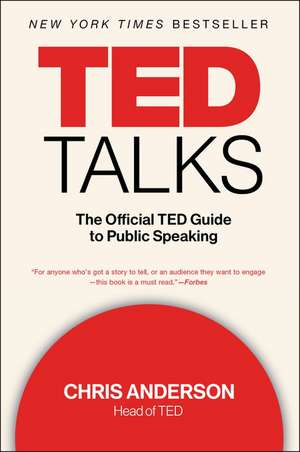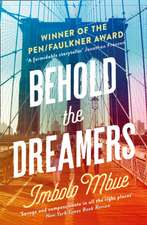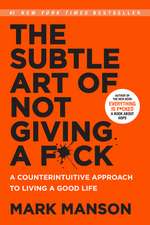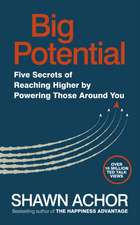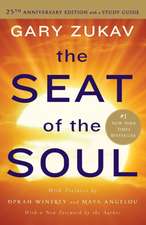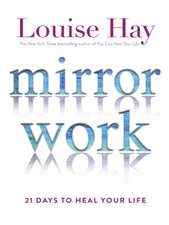Ted Talks: The Official TED Guide to Public Speaking
Autor Chris Andersonen Limba Engleză Paperback – 3 apr 2017
New York Times Bestseller
"Catnip for all the TED fans out there." --Publishers Weekly
"The most insightful book ever written on public speaking . . . a must-read." --Adam Grant, Wharton professor and New York Times best-selling author of Give and Take and Originals
Since taking over TED in 2001, Chris Anderson has shown how carefully crafted talks can be the key to unlocking empathy, spreading knowledge, and promoting a shared dream. Done right, a talk can electrify a room and transform an audience's worldview; it can be more powerful than anything in written form. This "invaluable guide" (Publishers Weekly) explains how the miracle of powerful public speaking is achieved, and equips you to give it your best shot. There is no set formula, but there are tools that can empower any speaker. Chris Anderson has worked with all the TED speakers who have inspired us the most, and here he shares insights from such favorites as Sir Ken Robinson, Salman Khan, Monica Lewinsky and more -- everything from how to craft your talk's content to how you can be most effective on stage. This is a must-read for anyone who is ready to create impact with their ideas.
| Toate formatele și edițiile | Preț | Express |
|---|---|---|
| Paperback (2) | 52.55 lei 3-5 săpt. | +25.49 lei 4-10 zile |
| HODDER AND STOUGHTON LTD – 4 ian 2018 | 52.55 lei 3-5 săpt. | +25.49 lei 4-10 zile |
| HarperCollins Publishers – 3 apr 2017 | 105.14 lei 3-5 săpt. |
Preț: 105.14 lei
Nou
20.12€ • 21.87$ • 16.92£
Carte disponibilă
Livrare economică 31 martie-14 aprilie
Specificații
ISBN-10: 1328710289
Pagini: 288
Dimensiuni: 135 x 203 x 19 mm
Greutate: 0.23 kg
Editura: HarperCollins Publishers
Colecția HarperBusiness
Locul publicării:United States
Recenzii de la cititorii Books Express
Anonim a dat nota:
this book has been really helpful, providing tips regarding speaking in public, and as a (hopefully) future student's council member, i've picked up some valuable things which i believe are going to help me in the upcoming workshops and public speeches i will have to hold.
Recenzii
Extras
Presentation Literacy: The Skill You Can Build
You’re nervous, right?
Stepping out onto a public stage and having hundreds of pairs of eyes turned your way is terrifying. You dread having to stand up in a company meeting and present your project. What if you get nervous and stumble over your words? What if you completely forget what you were going to say? Maybe you’ll be humiliated! Maybe your career will crater! Maybe the idea you believe in will stay buried forever!
These are thoughts that can keep you up at night.
But with the right mindset, you can use your fear as an incredible asset. It can be the driver that will persuade you to prepare for a talk properly.
That’s what happened when Monica Lewinsky came to TED. For her, the stakes couldn’t have been higher. Seventeen years earlier, she had been through the most humiliating public exposure imaginable, an experience so intense it almost broke her. Now she was attempting a return to a more visible public life, to reclaim her narrative.
But she was not an experienced public speaker, and she knew that it would be disastrous if she messed up. She told me:
"Nervous is too mild a word to describe how I felt. More like . . . Gutted with trepidation. Bolts of fear. Electric anxiety. If we could have harnessed the power of my nerves that morning, I think the energy crisis would have been solved. Not only was I stepping out onto a stage in front of an esteemed and brilliant crowd, but it was also videotaped, with the high likelihood of being made public on a widely viewed platform. I was visited by the echoes of lingering trauma from years of having been publicly ridiculed. Plagued by a deep insecurity I didn’t belong on the TED stage. That was the inner experience against which I battled."
And yet Monica found a way to turn that fear around. She used some surprising techniques, which I’ll share in chapter 15. Suffice it to say, they worked. Her talk won a standing ovation at the event, rocketed to a million views within a few days, and earned rave reviews online. It even prompted a public apology to her from a longtime critic, feminist author Erica Jong.
Indeed, everywhere you look, there are stories of people who were terrified of public speaking but found a way to become really good at it, from Eleanor Roosevelt to Warren Buffett to Princess Diana, who was known to all as “shy Di” and hated giving speeches, but found a way to speak informally in her own voice, and the world fell in love with her.
THE DAY TED MIGHT HAVE DIED
Here’s a story from my own life: When I first took over leadership of TED in late 2001, I was reeling from the near collapse of the company I had spent fifteen years building, and I was terrified of another huge public failure. I had been struggling to persuade the TED community to back my vision for TED, and I feared that it might just fizzle out. Back then, TED was an annual conference in California, owned and hosted by a charismatic architect named Richard Saul Wurman, whose larger-than-life presence infused every aspect of the conference. About eight hundred people attended every year, and most of them seemed resigned to the fact that TED probably couldn’t survive once Wurman departed. The TED conference of February 2002 was the last one to be held under his leadership, and I had one chance and one chance only to persuade TED attendees that the conference would continue just fine. I had never run a conference before, however, and despite my best efforts over several months at marketing the following year’s event, only seventy people had signed up for it.
Early on the last morning of that conference, I had 15 minutes to make my case. And here’s what you need to know about me: I am not naturally a great speaker. I sayumandyou knowfar too often. I will stop halfway through a sentence, trying to find the right word to continue. I can sound overly earnest, soft-spoken, conceptual. My quirky British sense of humor is not always shared by others.
I was so nervous about this moment, and so worried that I would look awkward on the stage, that I couldn’t even bring myself to stand. Instead I rolled forward a chair from the back of the stage, sat on it, and began.
I look back at that talk now and cringe—a lot. If I were critiquing it today, there are a hundred things I would change, starting with the wrinkly white T-shirt I was wearing. And yet . . . I had prepared carefully what I wanted to say, and I knew there were at least some in the audience desperate for TED to survive. If I could just give those supporters a reason to get excited, perhaps they would turn things around. Because of the recent dot-com bust, many in the audience had suffered business losses as bad as my own. Maybe I could connect with them that way?
I spoke from the heart, with as much openness and conviction as I could summon. I told people I had just gone through a massive business failure. That I’d come to think of myself as a complete loser. That the only way I’d survived mentally was by immersing myself in the world of ideas. That TED had come to mean the world to me—that it was a unique place where ideas from every discipline could be shared. That I would do all in my power to preserve its best values. That, in any case, the conference had brought such intense inspiration and learning to us that we couldn’t possibly let it die . . . could we?
Oh, and I broke the tension with an apocryphal anecdote about France’s Madame de Gaulle and how she shocked guests at a diplomatic dinner by expressing her desire for“a penis.”In England, I said, we also had that desire, although there we pronounced ithappiness,and TED had brought genuine happiness my way.
To my utter amazement, at the end of the talk, Jeff Bezos, the head of Amazon, who was seated in the center of the audience, rose to his feet and began clapping. And the whole room stood with him. It was as if the TED community had collectively decided, in just a few seconds, that it would support this new chapter of TED after all. And in the 60-minute break that followed, some 200 people committed to buying passes for the following year’s conference, guaranteeing its success.
Descriere
Notă biografică
CHRIS ANDERSON is the curator of TED. Trained as a journalist after graduating from Oxford University, Anderson launched a number of successful magazines before turning his attention to TED, which he and his nonprofit acquired in 2001. His TED mantra-"ideas worth spreading"-continues to blossom on an international scale. He lives with his family in New York City.
